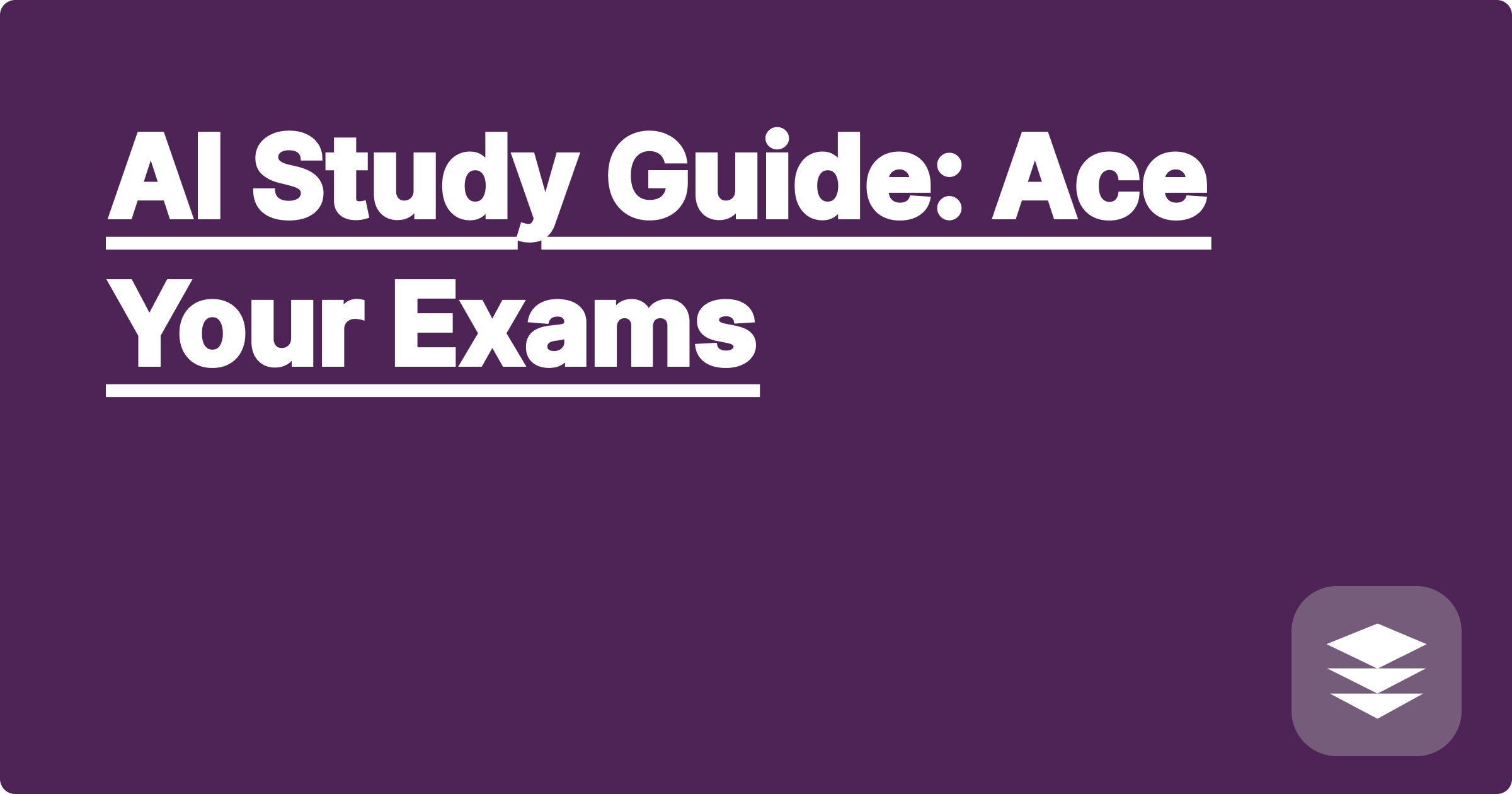
Are you a STEM student drowning in complex formulas, endless research papers, and the constant pressure to perform? Do you feel like you're constantly playing catch-up, struggling to balance coursework, research, and maybe even a part-time job? You're not alone. The demands of a STEM education are rigorous, and it's easy to feel overwhelmed. But what if there was a way to not just survive, but thrive? Artificial intelligence (AI) is rapidly transforming the learning landscape, offering powerful tools to help STEM students and researchers achieve academic excellence. This isn't about replacing human intellect; it's about augmenting it. It's about working smarter, not harder, by leveraging AI to unlock your full potential.
This blog post is your guide to navigating the exciting world of AI-powered learning and research, specifically tailored for STEM fields. We'll delve into practical strategies, explore lesser-known AI tools, and share real-world examples of how these technologies can revolutionize your academic journey. Forget generic advice; we're diving deep into targeted solutions that can help you ace your exams, streamline your research, and gain a competitive edge. Think of this as a friendly chat with a senior who's been there and discovered the secrets to success using AI.
STEM fields are inherently challenging. They demand a deep understanding of complex concepts, the ability to analyze vast amounts of data, and the dedication to persevere through difficult problems. Traditional learning methods often fall short in addressing these specific challenges. Lectures can be passive, textbooks can be dense, and office hours can be limited. Furthermore, research can be time-consuming, requiring extensive literature reviews, data analysis, and experimental design. These demands can lead to burnout, frustration, and ultimately, hinder academic performance. The sheer volume of information to process, coupled with the pressure to excel, can create a sense of overwhelm, especially for students juggling multiple commitments. This is where AI steps in, offering a powerful suite of tools to personalize the learning experience, automate tedious tasks, and provide valuable insights.
Imagine having a personalized AI tutor available 24/7, ready to answer your questions, explain complex concepts, and even help you design your research experiments. This is the power of Generalized Personal AI (GPAI). GPAI is not just another chatbot; it's a personalized learning companion that can adapt to your individual needs and learning style. You can use GPAI to create a customized study plan, break down complex topics into manageable chunks, and even practice for exams through interactive quizzes and simulations. Beyond GPAI, a plethora of specialized AI tools can significantly enhance your STEM studies. Tools like Wolfram Alpha can handle complex mathematical computations, while specialized AI platforms can analyze biological data, simulate physical phenomena, and even predict chemical reactions.
Integrating AI into your workflow is easier than you might think. Start by identifying your specific needs. Are you struggling with a particular subject? Do you need help managing your time? Once you've pinpointed your challenges, you can start exploring relevant AI tools. For example, if you're struggling with calculus, Wolfram Alpha can provide step-by-step solutions to complex integrals and derivatives. If you're overwhelmed by the volume of research papers you need to read, a tool like Elicit can help you quickly summarize key findings and identify relevant articles. For personalized learning and task management, explore integrating GPAI into your daily routine. Use it to schedule study sessions, set reminders for deadlines, and even brainstorm research ideas.
Let's say you're a biology student struggling to understand the intricacies of protein folding. Instead of spending hours poring over textbooks, you can use a specialized AI tool like AlphaFold to visualize protein structures and understand their function. Similarly, if you're a physics student grappling with complex equations, Wolfram Alpha can provide not only solutions but also visualizations and explanations. In my own research, I used a specialized AI tool to analyze large datasets of astronomical observations, saving me weeks of manual data processing. This allowed me to focus on interpreting the results and drawing meaningful conclusions. Another example: using GPAI to schedule study sessions based on my energy levels and prioritize tasks based on their importance significantly improved my time management and reduced stress.
Using AI effectively is not just about knowing which tools to use; it's about integrating them strategically into your workflow. Start by setting clear learning goals and identifying the areas where you need the most support. Don't be afraid to experiment with different AI tools and find the ones that best suit your learning style. Remember that AI is a tool, not a replacement for hard work and dedication. Use it to augment your learning, not to bypass it. Regularly evaluate your progress and adjust your AI-powered study plan accordingly. Collaborate with your peers and share your experiences with using AI tools. This can create a supportive learning environment and help everyone benefit from the power of AI. Finally, stay updated on the latest advancements in AI and explore new tools as they emerge. The field is constantly evolving, and there are always new and innovative ways to leverage AI for academic success.
To truly unlock your potential, consider incorporating GPAI as your personalized AI partner. Use it to track your progress, set realistic goals, and stay motivated. GPAI can also help you connect with other students and researchers, fostering a collaborative learning environment. Embrace the power of AI, and you'll be well on your way to acing your exams, excelling in your research, and achieving your academic aspirations. The future of learning is here, and it's powered by AI. Start exploring these tools today and discover how they can transform your academic journey.
AI for Labs: Speed Up Research
AI Homework Helper: STEM Made Easy
AI Design Tools: Engineering Made Fun
AI Solver: Conquer STEM Problems
AI Flashcards: Master STEM Concepts
AI for Data: Analyze STEM Data